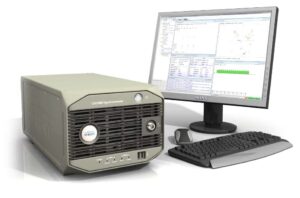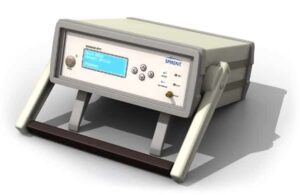 Spirent, a developer of simulation and test solutions for GPS/GNSS satellite-based navigation and positioning in unmanned systems, has partnered with Unmanned Systems Technology (“UST”) to demonstrate their expertise in this field. The ‘Gold’ profile showcases how their test and simulation solutions can be used to overcome the challenges of developing autonomous unmanned vehicles, such as self-knowledge of position and attitude, safe and accurate navigation, and recovery from signal loss, as well as operation in harsh environments.
Spirent, a developer of simulation and test solutions for GPS/GNSS satellite-based navigation and positioning in unmanned systems, has partnered with Unmanned Systems Technology (“UST”) to demonstrate their expertise in this field. The ‘Gold’ profile showcases how their test and simulation solutions can be used to overcome the challenges of developing autonomous unmanned vehicles, such as self-knowledge of position and attitude, safe and accurate navigation, and recovery from signal loss, as well as operation in harsh environments.
The GSS7000 Multi-GNSS Constellation Simulator is an entry-level test tool for verifying the positioning performance of unmanned vehicles under controlled, repeatable conditions. The accurate, powerful system allows simultaneous GNSS signals (supporting GPS, GLONASS, BeiDou, Galileo, QZSS and SBAS) across a wide range of frequencies, enabling test regimes that provides maximum rigour with minimum time and cost.
The GSS9000 GNSS Constellation Simulator is Spirent’s most advanced test solution, providing the sophisticated and accurate testing required for the precise positioning, navigation and timing systems of unmanned vehicles in military, aerospace and research applications. The GNSS9000 supports all signals and frequencies from all GNSS constellations, both present and under development, including regional augmentation systems and classified/restricted signals.
 The GSS6300 GPS/GNSS Signal Generator is designed for fast, accurate testing of multiple GNSS signals in a volume production test environment. The GSS6300 applies controllable, repeatable test signals directly to the product under test, thus avoiding problems with the electrically noisy conditions of a production environment and providing greater end-of-production line quality control than usage of uncontrollable “live-sky” signals.
The GSS6300 GPS/GNSS Signal Generator is designed for fast, accurate testing of multiple GNSS signals in a volume production test environment. The GSS6300 applies controllable, repeatable test signals directly to the product under test, thus avoiding problems with the electrically noisy conditions of a production environment and providing greater end-of-production line quality control than usage of uncontrollable “live-sky” signals.
The GSS6425 Multiple Constellation Record & Playback System records real-world GNSS signals, allowing developers to cut down on test flights and re-use captured flight data in the lab. This avoids slow, non-repeatable testing with live signals, thus saving travel and engineering costs and resulting in consistent, cost-effective results.
To find out more about Spirent, please visit their profile page: https://www.unmannedsystemstechnology.com/company/spirent/


















